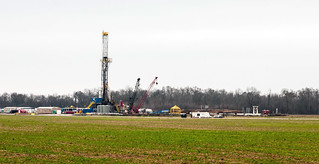
The issue of fracking continues to affect Fort Collins citizens, but not in the way you might think.
Back in November, the citizens of Fort Collins passed an initiative putting a five-year moratorium on fracking operations within city limits, despite the city council urging citizens to reject it.
In response to the initiative, The Colorado Oil and Gas Association is suing the city of Fort Collins for overstepping its jurisdiction, contending it is a state matter to impose energy regulations. COGA is also engaging in a similar lawsuit against Lafayette, who made amendments to its charter to prohibit hydraulic fracking.
The debate over jurisdiction is not new, even on this particular energy issue. In February 2009, Governor John Hickenlooper created a task force which was tasked to “develop strategies regarding the regulation of oil and gas development.” This task force found regulating the oil and gas industry in Colorado would be best served with a “collaborative, issue-by-issue approach” between local municipalities and the oil industry, with the Colorado Oil and Gas Conservation Commission, a state-run organization, is working as an arbitrator.
The city of Fort Collins has worked with the COGCC and the COGA in regards to regulation, but ultimately negotiations have slowed over the past year. During that time frame many Fort Collins citizens took their own action, namely with the initiative that passed in November.
With all this political movement in Fort Collins over the issue of fracking, one might think Fort Collins may well be oozing with oil reserves. But, according to Fort Collins City Council member Gerry Horak, the issue here in Fort Collins may be more political than practical.
“No applications for drilling permits in Fort Collins have been taken out in the last year,” Horak said. “Fort Collins had only eight wells in its jurisdiction before the moratorium, Weld county has around 20,000.”
Before the moratorium passed, any drilling endeavors were required to submit to regulations in place from the COGCC, standards keeping wells away from houses and establishing rules for noise and handling of potentially hazardous chemicals.
So let’s recap. For the city of Fort Collins, there were regulations in place to keep the few drilling sites reasonable safe. No new drilling permits have been filed in at least a year. The state has made it clear regulation is supposed to be handled through the COGCC. Yet, the citizens themselves passed a five year moratorium on fracking. And, now the city of Fort Collins is being sued.
The COGA isn’t suing the city of Fort Collins only because of the eight wells that shut down in November. The suit is making a point, the initiative went over the heads of the established framework and the elected officials trying to find a solution that keeps fracking safe and profitable.
I’m not saying to not get involved. Democracy is involvement and we need more informed and involved voters. But before you check into the game, its best to learn the rules.
Collegian editor at large Zack Burley can be reached at community@collegian.com.






